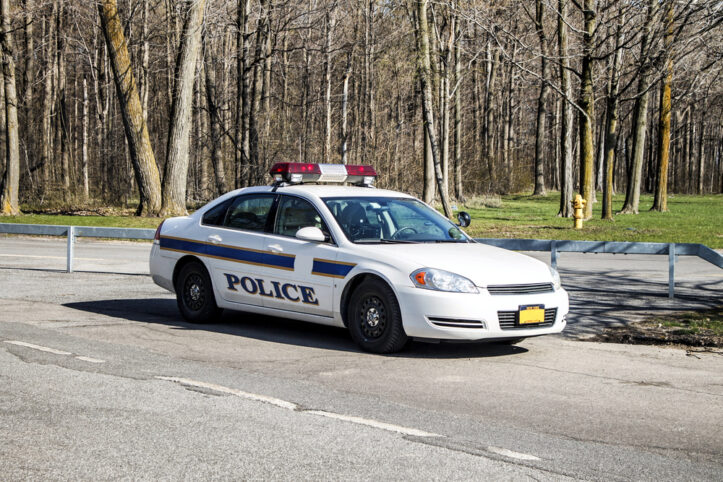Extended police stops – Fairfax criminal lawyer says beware
Extended police stops – Fairfax criminal lawyer says beware

Extended police stops need a Constitutional reason for doing so, says Fairfax criminal lawyer
Extended police stops that have no Constitutional basis, are ripe for challenging as a Constitutional Fourth Amendment violation. As a Fairfax criminal lawyer, I know that numerous police like to elongate their interaction with a suspect in order to fish for evidence of criminal activity, for instance evidence of a Virginia drug or DUI offense. Ideally, your police interaction with law enforcement officers (LEO’s) will have been recorded on videotape to support your Virginia criminal defense lawyer’s argument that your police encounter was unconstitutionally elongated. A “‘police stop exceeding the time needed to handle the matter for which the stop was made violates the Constitution’s shield against unreasonable seizures.’ justified only by a police-observed traffic violation, therefore, ‘become[s] unlawful if it is prolonged beyond the time reasonably required to complete th[e] mission’ of issuing a ticket for the violation.'” “‘A seizure justified only by a police-observed traffic violation, therefore, ‘become[s] unlawful if it is prolonged beyond the time reasonably required to complete th[e] mission’ of issuing a ticket for the violation.’ Tasks that fall within the lawful scope of a traffic stop include those related to securing officer safety, maintaining the safety of the highways, checking the driver’s license, inspecting the vehicle’s registration and proof of insurance, and determining whether the driver has outstanding warrants.” Coley v. Commonwealth of Virginia, Record No. 2167-23-2 (Va. App. 2025) (unpublished).
Give police no lawful reason for an extended LEO stop
Police made a presumptive and extended traffic stop of Stanley Eugene Coley, on an apparent fishing trip to catch people involved in illegal drug activity at or near a named hotel. Police asked Coley to include providing proof of insurance, which he was not able to find right away. The law enforcement officer (LEO) also was fumbling around to figure out how to print a traffic summons. These two factors apparently provided a police drug / controlled substances dog enough time to arrive timely at Coley’s incident scene and alert to drugs inside his vehicle. Coley gives no relief to this defendant’s argument that the insurance proof delay should not have arisen in the first place, because this was not a traffic matter needing exchange of car insurance information.
Beware of wide latitude given to police for drug sniffing canines
Beware of wide latitude often given to police drug sniff dogs by police. For instance, the Coley extended police stop case opines: “The trial court did not err in holding that [drug dog] Colt was reliable. Officer Rowe testified at length regarding his and Colt’s qualifications. Officer Rowe testified that he had been a canine handler since 2019 and that Colt was his second canine partner. Officer Rowe and Colt received specialty training at a 14-to-16-week program. Training included familiarization with Colt’s alerts. Colt was certified to detect odors of cocaine, heroin, methamphetamine, and ecstasy in May 2021. Between May 2021 and October 2021, Officer Rowe and Colt had conducted at least a hundred exercises and completed weekly training exercises. Since the October 2021 traffic stop, Colt had been recertified.” Coley.
What are Virginia’s caselaw standards for allowing a drug dog sniff?
Whether a police stop is extended or not: “The Virginia Supreme Court has held that ‘a positive alert from a narcotics detection dog establishes probable cause to conduct a search of a vehicle and that evidence seized during the search is admissible after a proper foundation has been laid to show that the dog was sufficiently trained to be reliable in detecting narcotics.” Jones v. Commonwealth, 277 Va. 171, 180 (2009). A ‘dog’s reliability can be established from its training and experience, as well as a proven track record of previous alerts to the existence of illegal narcotics.’ Id. at 180-81. ‘Specific certifications and the results of field testing are not required to establish a sufficient foundation.’ Id. ‘[I]f the dog’s qualifications are challenged, [however,] the trial court may consider any relevant evidence in determining whether the Commonwealth has established the dog’s reliability in detecting narcotics.’ Id.” Coley.
Fairfax criminal lawyer Jonathan Katz relentlessly pursues your best defense against Virginia felony, misdemeanor and DUI prosecutions. Your next great step for a strong defense is to schedule your free initial in-person confidential consultation with Jon Katz about your court-pending prosecution, at 703-383-1100, Info@KatzJustice.com and (text) 571-406-7268.

